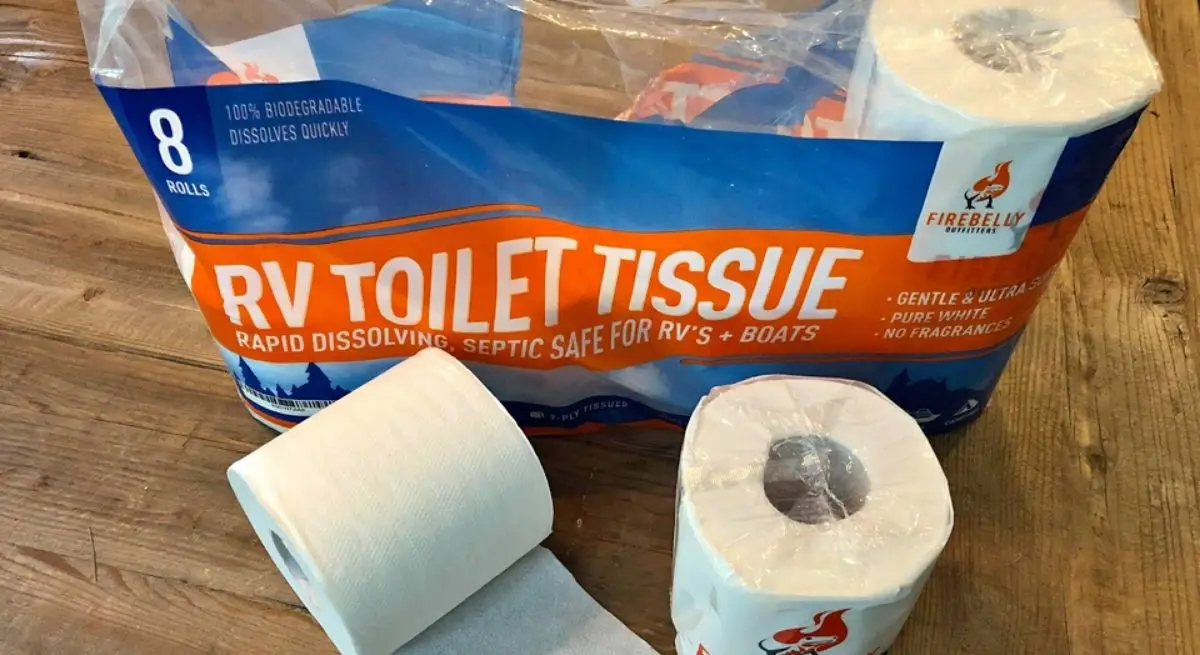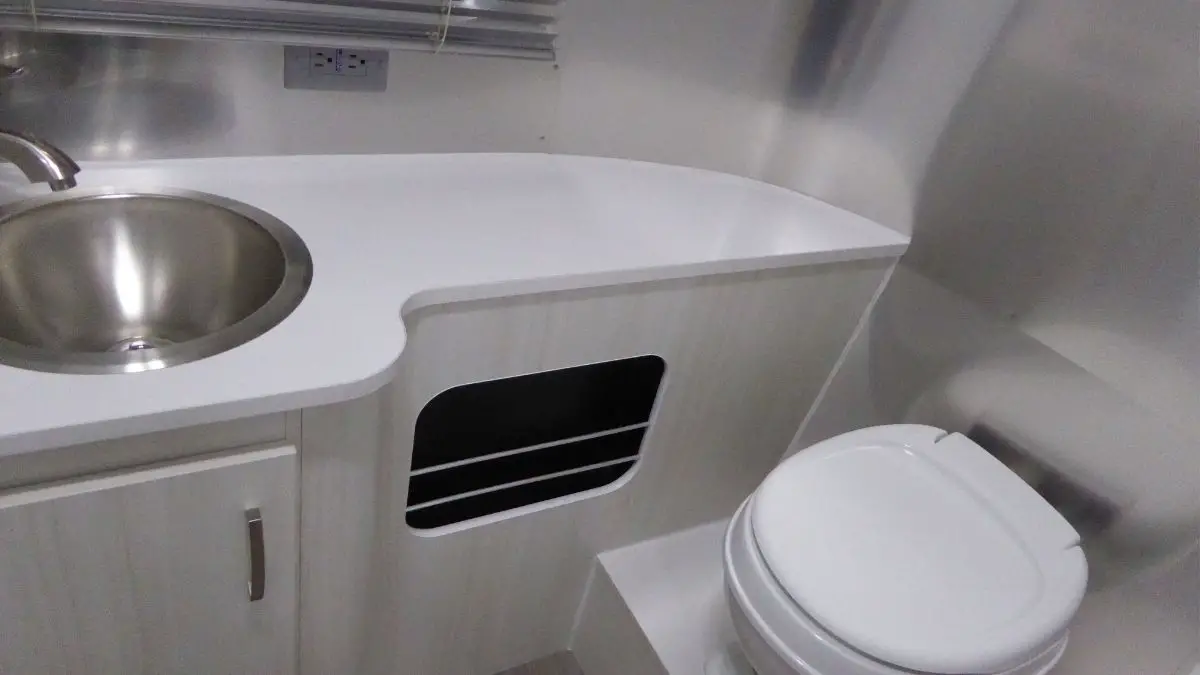Boats, RVs, and buildings with septic systems have special needs regarding toilet paper because they all have tanks that receive the sewage, but those needs are virtually the same so the difference between the toilet papers is just labeling.
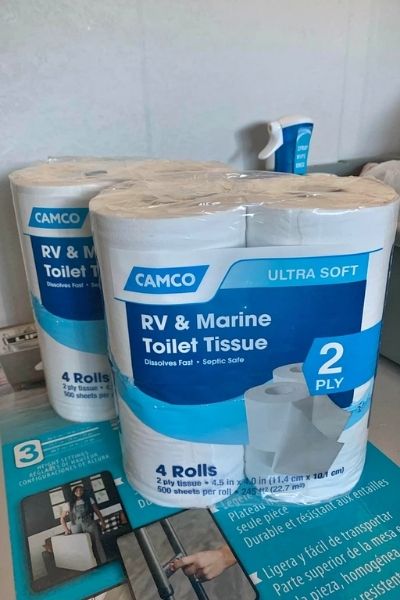
Of course, the amount of time the sewage spends in those tanks varies on the application. RV tanks will be drained by gravity and marine toilets are typically emptied with suction when they are full or at convenient intervals, while a septic tank remains full for most of its service life, allowing effluent to pass through while solids break down inside them.
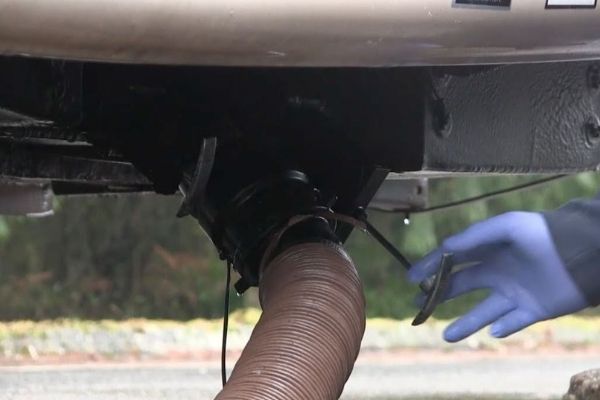
The biological process that breaks down the waste is the same regardless and at least begins in all three types, so the characteristics of toilet paper that help that process begin are the same regardless of which label is on the packaging.
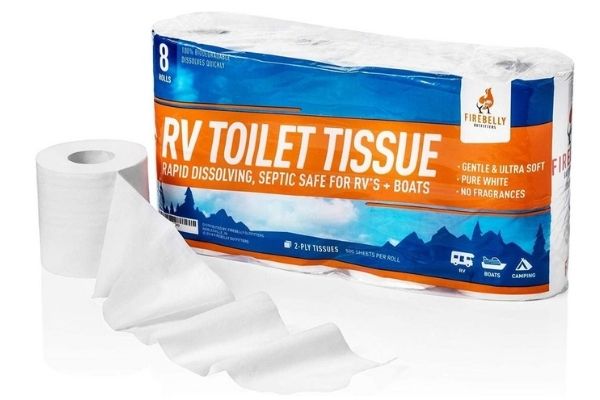
As a boat or RV owner, you probably don’t care if your dumpsite goes into a municipal sewer and sewage treatment plant or a septic system, provided the dumping process goes as smoothly as possible, so getting that biological process going quickly is in your best interest. Putting the wrong things down your toilet can make this process quite lumpy and messy. For best results in dumping, see How To Dump Your Dark & Grey Water Tanks.
What Kinds Of Toilet Paper Should I Avoid Using In My RV?
Toilet papers with synthetic products like scents and adhesives can be harder for the bacteria to break down and can even limit their growth within the black tank. So toilet papers with scents and extra layers glued together should be avoided.
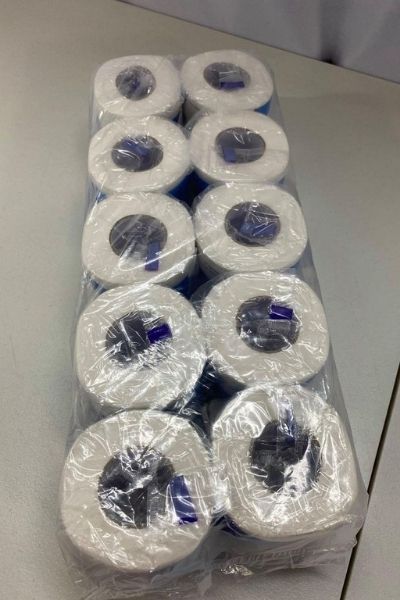
Any kind of toilet paper will eventually break down under the right circumstances, but the right circumstances involve plenty of water and healthy bacteria. The higher the ply count on your toilet paper, the harder it is to break down because of the adhesive.
It is better to use two layers of two-ply than one layer of 4 plies because it means the bacteria have less adhesive slowing them down. Scented toilet paper has a similar effect on the bacteria, so while it might be a way to add a nice smell to your bathroom, the bacteria which should be breaking down your waste will not be able to do their job as well, so not only will it make it harder to break down toilet paper, but the overall smell of your black tank will be worse.
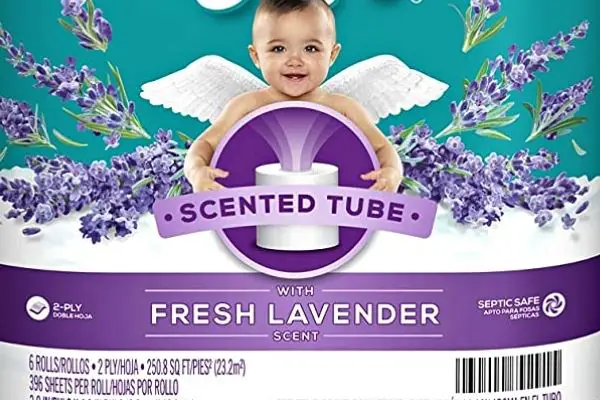
As a basic rule of thumb, the further the solid waste is from its source, the less it smells. The same applies to your black tank, both when you use your toilet and when you dump it.
What Can I Add To Make My Black Tank Smell And Function Better?
Adding RV-specific products helps the bacteria and enzymes in the tank break down waste while covering odors. These range from powders like HAPPY CAMPERS RV Holding Tank Treatment, to liquids like Eco Strong RV Toilet Holding Tank Treatment, and even dissolvable packets like Camco TST Ultra-Concentrated Orange Citrus Scent RV Toilet Treatment.
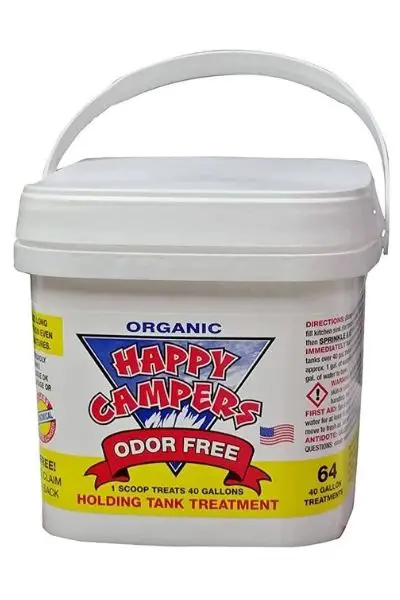
Even similar products made for septic systems can be used to help your bacteria do their job in breaking down your waste. What you shouldn’t add to your black tank are disinfectants like antibacterial soap and bleach because they kill off friendly bacteria which eat your waste, making for an easier to clean tank.
Bleach is also bad to put in your black tank because one of the chemicals that is produced as urine breaks down, which can react with bleach in dangerous ways. Of course, most of the dangerous gasses produced by this reaction would be vented to the outside through your tank vent and these reactions are only a small portion of what’s going on inside.
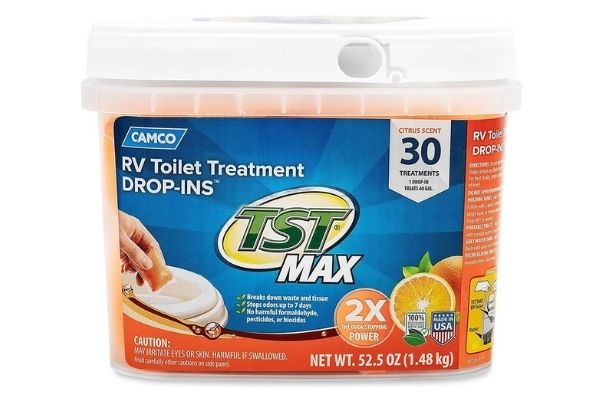
So, it’s not worthy of the same level of a safety concern as mixing the wrong cleaning products directly when cleaning your bathroom and it doesn’t mean you can’t use toilet cleaners with bleach in them, but dumping it in the tank still doesn’t fix the problem of a smelly black tank the way many people think it will. Save your money on those gallons of bleach for your black tank and get some RV toilet or septic enzymes instead.
How Much Toilet Paper Can You Put Down Your RV Toilet?
There really is no limit to how much toilet paper you can put through your RV black tank if it is used properly. If you leave your tank valve open and just keep using your RV toilet, a pile of solids will accumulate in your tank as the liquids flow through, until they don’t.
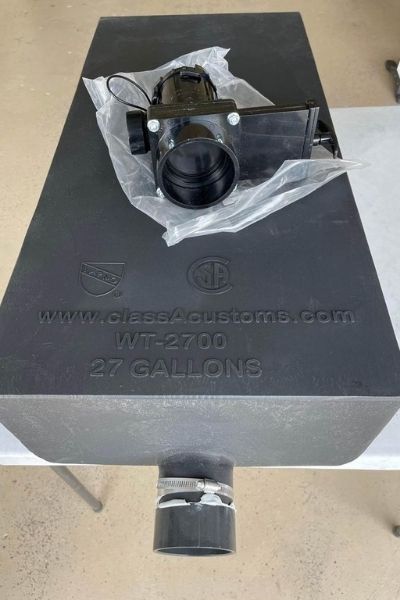
At this point, you’ll find that the total volume of the tank, minus the fecal materials, is about the total volume of the toilet paper you can put in the tank, so you really don’t want to find out. If you’re finding that you are accumulating paper under the toilet which isn’t flushing away as easily as it should when you’re dumping, then perhaps you’re using the wrong kind, or you need to add more water to the tank so it can flow and dissolve.
If you’re trying to conserve waste tank capacity and freshwater while boondocking, you can do this by dumping dirty dishwater into the toilet instead of down the kitchen sink drain into the grey tank. Some people have even run separate waste lines from the dirty side of their two-compartment sink directly into the black tank while recycling their grey water through filters to flush their toilets, that way there is no decomposing food waste in the grey tank to make the water smell bad. You can read more about it in this article How Do RV Bathrooms Work?
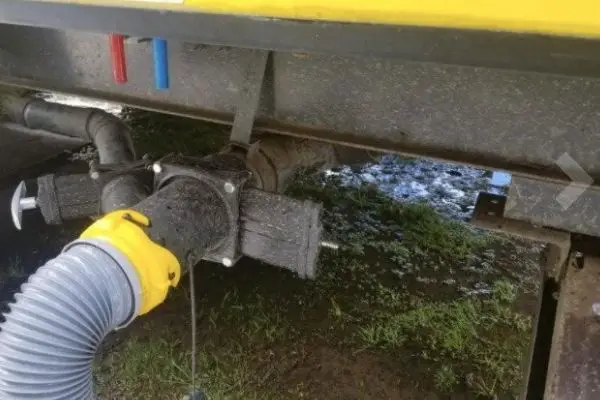
Can You Put Regular Paper Towels Down The RV Toilet?
Paper towels are designed to be more durable than the messes they clean up, so waste sloshing around in a black tank is unlikely to break them down enough to flow as it should. Putting anything other than bodily waste or toilet paper down a toilet is usually not a good idea, whether it is in a boat, RV, or conventional building.
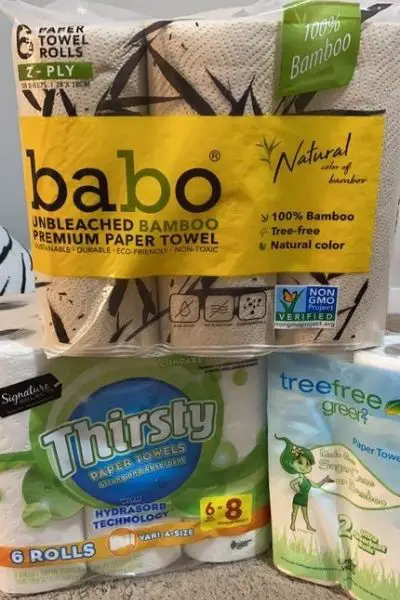
You may be able to get away with it occasionally in an emergency when you’ve got nothing else to wipe with, but enough of them will add up into a blockage that you’ll have to clear yourself when you dump, so if you have no other choice, try to use as small of pieces as possible, but it is not how you should dispose of them regularly.
Should You Always Keep Water In Your RV Toilet Bowl?
RV toilet manufacturers use various materials to seal the flush valves in their toilets. Some may dry out and leak if not protected by water or periodical use of specific conditioning products, so the manufacturer of your toilet is your best resource for that. Still, when moving your RV, you probably don’t want to have water in the bowl, sloshing all over your bathroom.
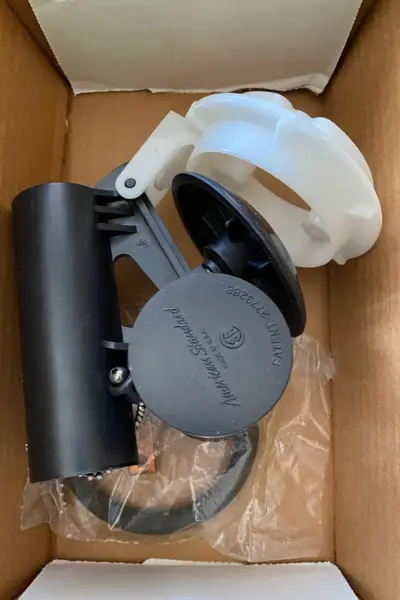
Can You Put Saniwipes Down The RV Toilet?
When sanitary wipe manufacturers call their wipes “flushable,” all it means is that they put a residential toilet on top of a bucket, hooked it up to water, threw a wipe into the bowl, and it came out into the bucket when they flushed it. This does not mean that the rest of the plumbing system can actually handle them, so you should never put wipes down the toilet.
Perhaps in a perfect world, where there are no cracked or improperly pitched pipes, no mechanical ejector pumps, no sewage tanks, and perfectly smooth gravity-fed sewage lines from the toilet to the treatment plant, these wipes could be filtered out, washed, and reused because they absolutely do not break down.
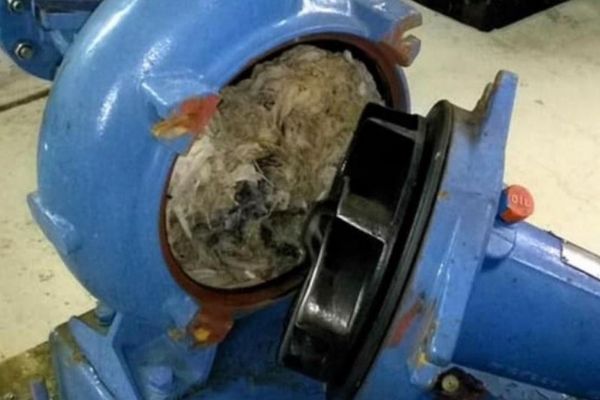
But since that’s not the world we live in when it comes to plumbing and sewage systems, they cause nothing but problems in any type of plumbing system they are flushed down, including your RV. Here’s an article from the town of Lexington Massachusetts on Flushable wipes and the damage they cause to the sewer system.
Can You Flush Tampons Down An RV Toilet?
Flushing tampons down into an RV toilet is a recipe for a disaster as it can clog up the drainpipe and cause a plugged black tank. Tampons do a very good job of absorbing liquid to block flow through constricted spaces. In pipes, it is a bad thing. In your RV black tank or anywhere you dump, it is called a sewer mouse problem and can be expensive to fix.

If a campground owner figures out who was dumping garbage like sanitary wipes or tampons into their sewage system, they are likely to kick the responsible person out of the campground and ban them from coming back after having to pay the plumber to fix the problem, especially if it means digging up a septic system. It is inconvenient to have to dispose of these waste products in the trash, but that’s where they belong.

